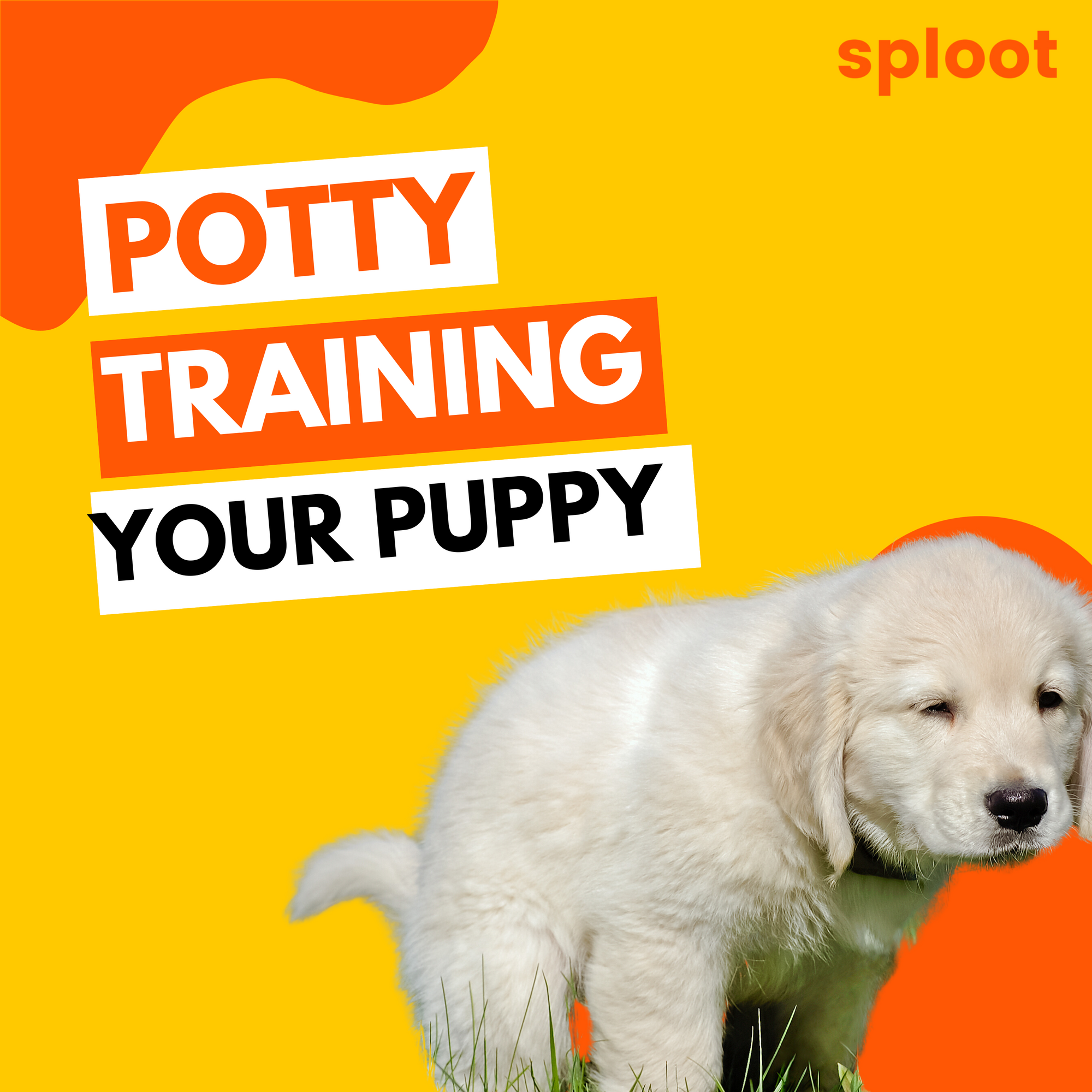7 Easy Steps To Potty Train Your Puppy In 7 Days

If you’ve brought a new puppy home, then you must be feeling excited and joyous. The feeling lasts for a few days until your pup starts to pee and potty anywhere and everywhere. Puppies are hardly naturally toilet trained.
Breeders may tell you they are but it’s a hard truth. The real training has to be provided by the owner whatsoever. You don’t want your home to be smelly all the time, do you? So start the toilet training as early as possible.
Let’s help you get through it.
When should I start potty training my puppy?
Potty training or toilet training your puppy can start as soon as you bring them home. At this stage, puppies are around 12 weeks old. Puppies younger than that will have a hard time having bladder control, so do not start too early.
At 8 weeks old, you can introduce peeing and pooping outside the house while taking them on walks. You can reward them every time they go outside by praising them or giving age-specific treats.
5 necessary equipment required for potty training a puppy
Here are the necessary pieces of equipment or things you need to start potty training your puppy:
Pee or Potty Pads
Toilet pads are absorbent pads placed on the floor to provide a designated spot for your puppy to relieve themselves indoors when they can't go outside. They help contain messes and make cleanup easier.
Age-Specific Treats
Treats are used as rewards when your puppy successfully goes potty in the designated area. Positive reinforcement encourages good behavior and helps them associate the right place to do their business.
Puppy Crate
A crate is used for crate training, which helps establish a routine and prevents accidents when you can't supervise your puppy. Dogs instinctively avoid soiling their sleeping area, making the crate a useful tool for potty training.
Poop Bags
These are essential for cleaning up after your puppy when you're outside. Responsible waste disposal keeps your surroundings clean and courteous to others.
Leash and Collar
These are used when you take your puppy outside for potty breaks. They help control and guide your puppy to the designated potty area, making outdoor potty training more effective.
How long does it take to potty train a puppy?
It takes around five to eight months to properly potty train a puppy to guarantee no accidents at home. However, training is always a continuous process and the training steps should be continued practiced even when your puppy is grown up.
Learning toilet training completely will depend on your puppy’s size, age, and intellectual capacity. Potty training can be fast for some puppies, taking just a few weeks, while for others, it might take longer, even up to a year. It varies from dog to dog.
7 days routine to toilet train your puppy
Follow these seven steps to help your puppy learn where and when to go potty, setting them up for a successful and accident-free adulthood.
Take your puppy outside every hour
Imagine your puppy as a tiny baby who needs to go potty often. On the first 7 days, you should take them outside to their designated potty spot every hour. This helps them get used to the idea of going outside when they need to do their business.
Praise your puppy and offer a treat when they excrete
When your puppy successfully goes potty outside, give them lots of praise like saying "good job" and offering a tasty treat. This positive reinforcement lets them know they did the right thing.
Provide playtime after pooping or peeing
After your puppy finishes their business outside, reward them with some fun playtime. This encourages them to associate potty time with a reward and outdoor play.
Track your puppy’s toilet routine
Start keeping a record of when your puppy eats, drinks, and goes potty. This helps you predict when they are likely to need a bathroom break and allows you to be proactive.
Follow a regular feeding schedule
Establish set meal times for your puppy. A consistent feeding schedule helps regulate their potty schedule, making it easier to predict when they'll need to go out.
Clean up accidents at home perfectly
If your puppy has an accident indoors, clean it up thoroughly so they can't smell it. This prevents them from associating indoor spaces with potty areas.
Repeat these steps until adulthood
Potty training takes time and patience. Continue with these steps consistently, even as your puppy grows. As they mature, they'll learn to signal when they need to go out, and accidents will become rare.
If you would like to reach more such blogs, download the sploot app here.

